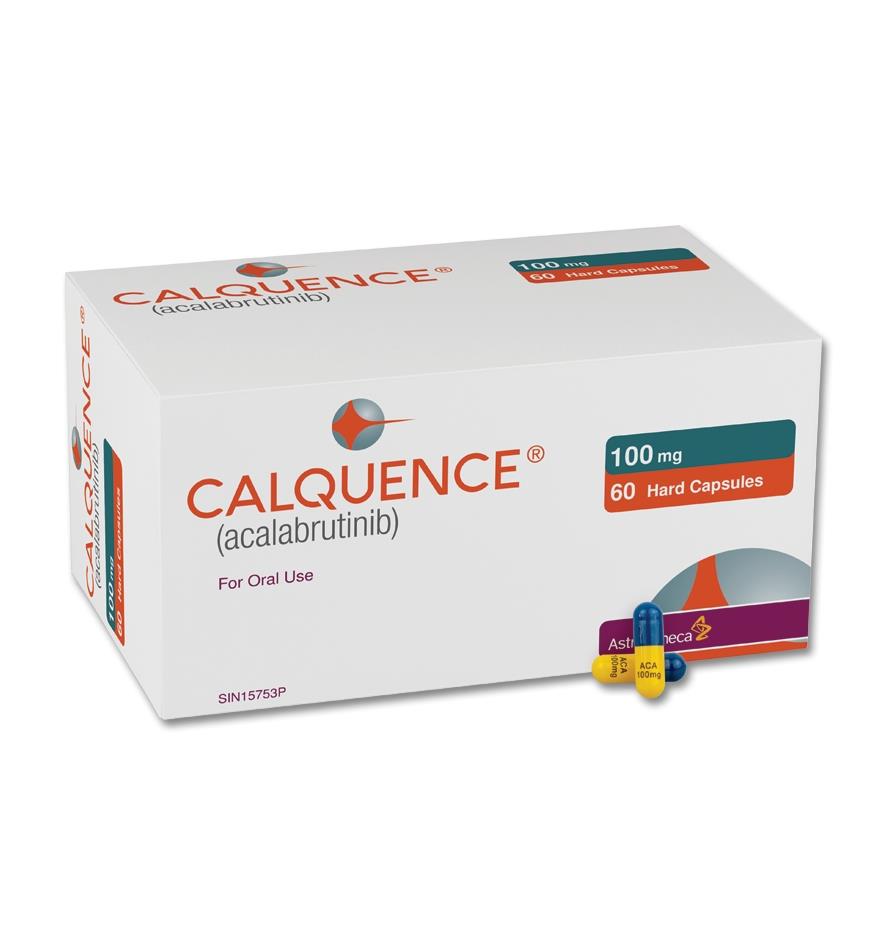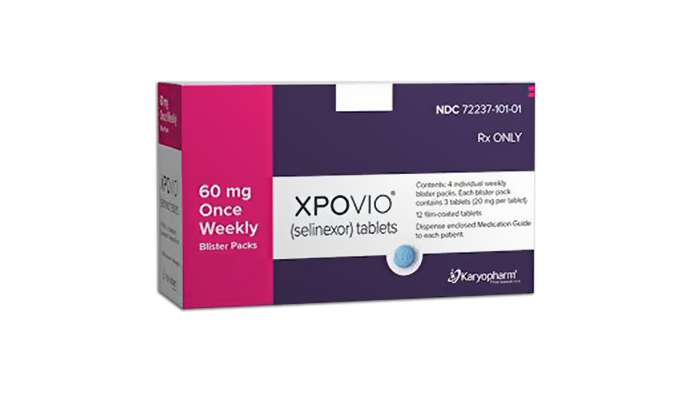Calquence (acalabrutinib) vs Xpovio (selinexor)
Calquence (acalabrutinib) vs Xpovio (selinexor)
Calquence (acalabrutinib) is a Bruton's tyrosine kinase (BTK) inhibitor used primarily for the treatment of certain types of B-cell malignancies, such as chronic lymphocytic leukemia (CLL) and mantle cell lymphoma (MCL). Xpovio (selinexor) works differently; it is a selective inhibitor of nuclear export (SINE) that blocks the export of tumor suppressor proteins, and is used for multiple myeloma and diffuse large B-cell lymphoma, often in combination with other therapies. The right choice between Calquence and Xpovio would depend on the specific type and stage of blood cancer a patient has, as well as their overall health, potential side effects, and how the medicine fits into their treatment plan, which should be determined in consultation with a healthcare provider.
Difference between Calquence and Xpovio
| Metric | Calquence (acalabrutinib) | Xpovio (selinexor) |
|---|---|---|
| Generic name | Acalabrutinib | Selinexor |
| Indications | Chronic lymphocytic leukemia (CLL), small lymphocytic lymphoma (SLL), mantle cell lymphoma (MCL) | Multiple myeloma, diffuse large B-cell lymphoma |
| Mechanism of action | Bruton's tyrosine kinase (BTK) inhibitor | Selective inhibitor of nuclear export (SINE) compounds that inhibits exportin 1 (XPO1) |
| Brand names | Calquence | Xpovio |
| Administrative route | Oral | Oral |
| Side effects | Headache, diarrhea, muscle pain, anemia, infection risk | Nausea, vomiting, fatigue, loss of appetite, weight loss, low blood counts |
| Contraindications | Known hypersensitivity to acalabrutinib or its excipients | Known hypersensitivity to selinexor or its excipients |
| Drug class | Antineoplastic agent, BTK inhibitor | Antineoplastic agent, XPO1 inhibitor |
| Manufacturer | AstraZeneca | Karyopharm Therapeutics |
Efficacy
Efficacy of Calquence (Acalabrutinib) in Lymphoma Treatment
Calquence (acalabrutinib) is a novel Bruton's tyrosine kinase (BTK) inhibitor that has shown efficacy in the treatment of certain types of lymphoma. Specifically, acalabrutinib has been approved for the treatment of mantle cell lymphoma (MCL) in patients who have received at least one prior therapy. Clinical trials have demonstrated that acalabrutinib can lead to high response rates in relapsed or refractory MCL, with a significant proportion of patients achieving complete remission. Its precise mechanism of action involves the inhibition of BTK, a key signaling molecule in the B cell receptor pathway, which is critical for the survival and proliferation of malignant B cells.
Efficacy of Xpovio (Selinexor) in Lymphoma Treatment
Xpovio (selinexor) is a selective inhibitor of nuclear export (SINE) compound that has been studied for its efficacy in treating various hematologic malignancies, including lymphoma. Selinexor functions by inhibiting the nuclear export protein XPO1, leading to the accumulation of tumor suppressor proteins in the cell nucleus and inducing apoptosis of cancer cells. In the context of lymphoma, selinexor has been evaluated in clinical trials for patients with diffuse large B-cell lymphoma (DLBCL), especially in those who have had multiple prior lines of therapy and have limited treatment options. The results from these trials have shown a meaningful clinical response in a subset of patients, providing a new therapeutic avenue for individuals with this aggressive form of lymphoma.
Comparative Efficacy in Lymphoma Treatment
When comparing the efficacy of Calquence and Xpovio in the treatment of lymphoma, it is important to consider the specific subtype of lymphoma and the patient's prior treatment history. Calquence has established its role in the management of MCL after the failure of initial therapies, while Xpovio has been investigated primarily in the setting of refractory or relapsed DLBCL. Both drugs offer novel mechanisms of action and have expanded the arsenal of treatments available to patients with these challenging forms of lymphoma. However, their efficacy can vary significantly among individuals, and the choice of therapy must be tailored to each patient's unique clinical circumstances.
Conclusion
In conclusion, both Calquence (acalabrutinib) and Xpovio (selinexor) have shown efficacy in the treatment of different subtypes of lymphoma. Acalabrutinib is particularly effective in treating relapsed or refractory mantle cell lymphoma, while selinexor has shown promise in the treatment of diffuse large B-cell lymphoma in patients who have exhausted other therapeutic options. As research continues, the efficacy profiles of these drugs may expand to include other lymphoma subtypes or be used in combination with other therapies to improve patient outcomes. It is critical for healthcare providers to stay informed about the latest clinical trial data and treatment guidelines to optimize the use of these targeted therapies in the management of lymphoma.
Regulatory Agency Approvals
Calquence
-
European Medical Agency (EMA), European Union

-
Food and Drug Administration (FDA), USA

-
Health Canada

-
Pharmaceuticals and Medical Devices Agency (PMDA), Japan

-
Therapeutic Goods Administration (TGA), Australia

Xpovio
-
European Medical Agency (EMA), European Union

-
Food and Drug Administration (FDA), USA

Access Calquence or Xpovio today
If Calquence or Xpovio are not approved or available in your country (e.g. due to supply issues), you can access them via Everyone.org.
How it works

Make an enquiry
Choose the medicine you want to buy, answer a couple of questions, and upload your prescription to speed things up. We’ll get back to you within 24 hours.


Make an enquiry
Choose the medicine you want to buy, answer a couple of questions, and upload your prescription to speed things up. We’ll get back to you within 24 hours.


Breeze through the paperwork
We'll guide you through the required documents for importing unapproved medicine, ensuring you have all the necessary information.


Get a personalized quote
We’ll prepare a quote for you, including medicine costs and any shipping, administrative, or import fees that may apply.


Receive your medicine
Accept the quote and we’ll handle the rest - sourcing and safely delivering your medicine.

Some text on this page has been automatically generated. Speak to your physician before you start a new treatment or medication.
Let's talk
If you have any questions, call us or send us a message through WhatsApp or email:
Contact us




